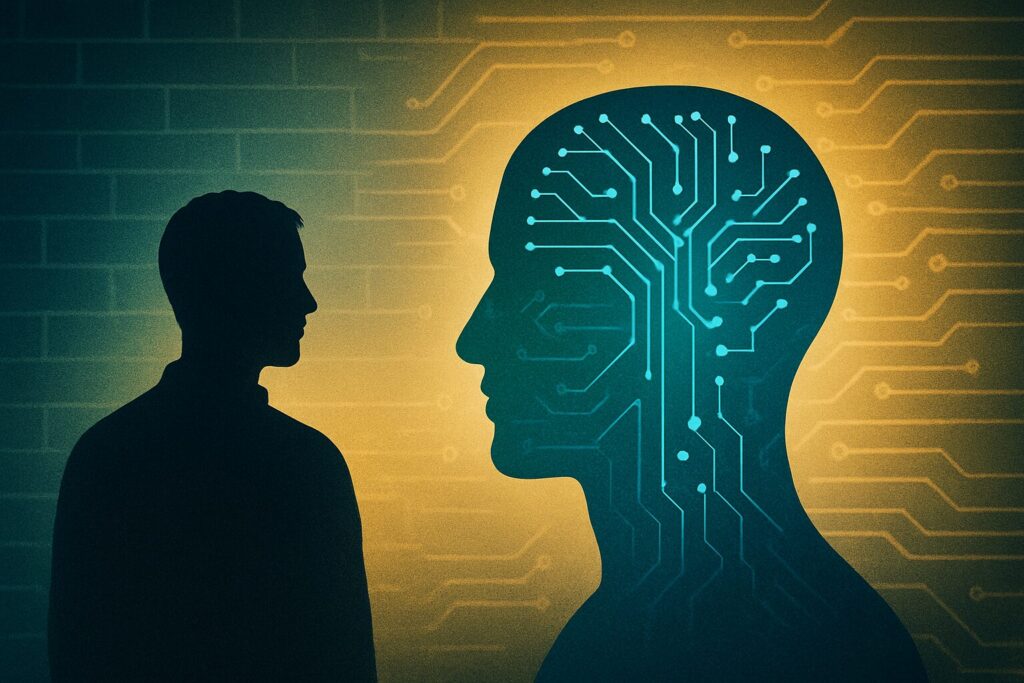
On the Path of the Seeker – Humanity and AI in the Mirror of Time
The Path
Is a thought truly my own when AI takes part in the writing?
I never believed I could write. I had plenty of thoughts – clear, contradictory, chaotic – but they got stuck in my head. Language always felt too narrow, too smooth; it could never keep up with what was going on inside me. Spelling and grammar felt like tripwires, not aids. I knew what I wanted to say, just not how. Then came AI. Not a substitute for thinking, but a resonating body. It listens before it writes. It helps me shape what felt unsayable, tracing lines where I only had shadows. Perhaps that’s where its value lies: it reveals what was already there – but had never found its way out.
This thought is homegrown.
I’m not saying this to make myself seem important, but to be clear: yes, I think for myself. Ever since machines started to co-write, the very idea of “one’s own” has become suspect. When a text is created together with an AI, many ask: who’s really speaking?
Writing used to be simple. Head, hand, paper. The text was proof: I was here, I was thinking. Today there’s something in between – a tool that responds. No longer a pen, but a counterpart.
Many find that unsettling. Maybe because we confuse creativity with solitude. That old image of the lonely genius – pen in hand, lamp lit, world shut out – has clung to us since the Romantic era. We still believe that true thinking must happen in silence. But thinking was never silent. It has always been a conversation – with others, with oneself, with everything that resonates along.
AI simply continues that dialogue. It reflects, sorts, provokes. It shows that thoughts were never solely mine to begin with. And honestly, that’s no loss. It’s a mirror, not a theft.
Those who write with AI don’t write less – only more consciously.
You read more carefully. You discard more. A sentence can feel like a small argument with someone who almost understands you. The machine offers suggestions – you decide what remains.
Perhaps the misunderstanding lies in the fact that we confuse creativity with control. We think a thought is only genuine if it comes to us entirely on its own. But that almost never happens. We think in borrowed words, in quotes, in images long thought by others. AI merely makes that visible – it shows how much of us is already made of resonance.
Machines formulate. Humans mean.
That’s the difference – and it remains.
Those who work with AI lose nothing of their voice. They merely shift it – from spontaneous speech to deliberate composition, from solitude to interplay. It’s not a loss of control, but a new kind of it – not holding on, but listening.
Maybe that’s the real task of our time: to understand that what is ours doesn’t disappear when shared. It becomes clearer. Truer. Just different.
